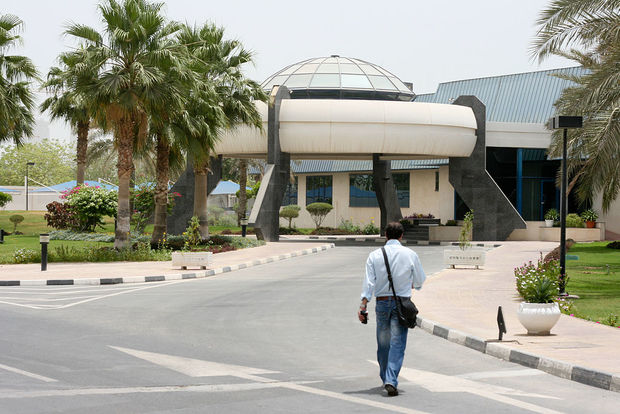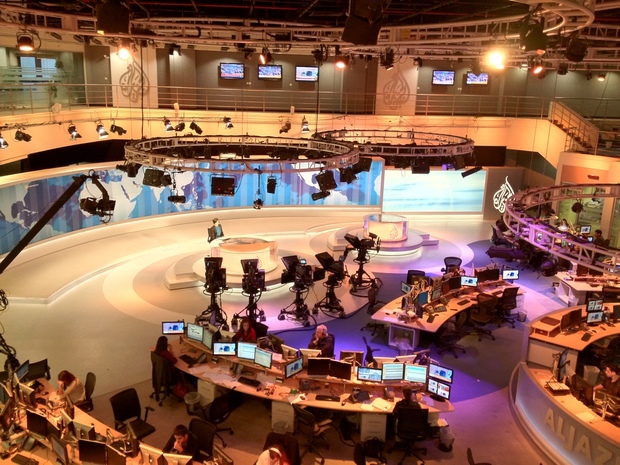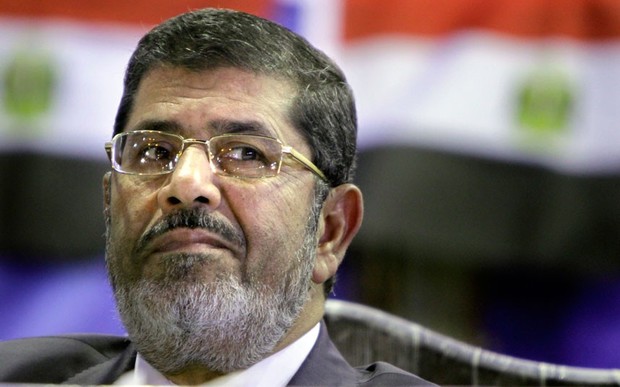''If we let Al Jazeera keep silent today, tomorrow there won’t be any independent media in the Arab world''
The most popular TV channel in the Arab world Al Jazeera has been in the centre of a political scandal. Saudi Arabia, Qatar, Bahrein and the UAE required Qatar to shut the TV channel that belongs to it – it was one of the 13 demands to recover diplomatic relations of these countries with Doha. In an op-ed column written especially for Realnoe Vremya, expert in Eastern studies Marianna Belenkaya told how fair it is to require to close the channel and why the confidence in Al Jazeera was eroded.
''Few people in the Arab world separate the Qatari politics from Al Jazeera's politics''
The story of Al Jazeera is educative. Can one country require another one to close the media that belongs to it? Is it information or support of terrorists? Is it freedom of speech or threat to security? How not to cross the fine line from an impartial witness to participant and even the creator of the story? Maybe crossing this line is a mission of the media today?
Arab countries accuse Al Jazeera of interference in their domestic affairs, support of terrorism and threat to the national security.
''We defend the freedom of expression and believe in people's right to knowledge. We are no one's messenger or spokesperson… Al Jazeera — like all credible media organisations — has been challenged throughout its history. We have been criticised because our journalism shows what is really going on, and sometimes governments, corporations or individuals don't want what they are doing to be seen… The attempt to silence Al Jazeera is an attempt to silence independent journalism in the region,'' journalists of the TV channel addressed their spectators and readers in an open letter.

One can't help but agree with it. Al Jazeera changed the situation with the media in the region: investigations and debates substituted ''parquet journalism'', reporters of the TV channel were not afraid of topics that had been forbidden any more – corruption and eye-watering wealth of rulers, hunger and poorness of the population. The TV channel was the first Arab media that opened a news bureau in Israel. ''The voice of the voiceless,'' Al Jazeera workers tell about themselves. Although Al Jazeera is a state TV channel on paper, it describes itself as independent media.
The TV channel aired in November 1996. Its English version appeared precisely 10 years later. Nowadays the media holding includes channels about sport, live transmissions, documentaries as well as educational and research centres. There are over 70 bureaus throughout the world and about 3,000 workers. All these people make history.
Al Jazeera was an example, Al Jazeera taught. The skeleton staff of the TV channel consisted of journalists who worked in the Arab version of BBC for several years that closed in April 1996. Current Emir of Qatar Hamad bin Khalifa Al Thani's father got a team that was ready to work. He gave money and promised not to interfere in the business of the editorial, but few people in the Arab world separate the Qatari politics from Al Jazeera's politics. Moreover, almost all the Arab governments except Qatar were criticised by the TV channel.
''Experts concluded that journalists could know about many terrorist attacks beforehand''
Words of Al Jazeera crossed the borders of Near East in 2001. The TV channel was the only media that obtained permission to work in Afghanistan during the American military operation from the Taliban. Messages of Al-Qaeda's (the organisation is banned in Russia) leader Osama bin Laden and other terrorists also started to appear on the channel. By some records, experts concluded that journalists could know about many terrorist attacks beforehand.

Al Jazeera was an example, Al Jazeera taught. The skeleton staff of the TV channel consisted of journalists who worked in the Arab version of BBC
The first accusations of Al Jazeera of ties with terrorists appeared then. The situation suddenly aggravated after the Arab Spring – a wave of protests in Arab countries. The TV channel was in the centre of events. It was impossible to call its journalists impartial. Yes, the floor in the air was given to all the sides – both the opposition and governments. However, the audience understood whose side everybody was on in fact.
The TV channel often had wishful thinking. Numbers of people who participated in protests changed, army and forces were always accused of violence, and protesters were always civilians even if it was not so. In Egypt, Syria, Yemen, my friends just brushed messages of Al Jazeera off – while where it was told about millions of protestors in the square, there were tens of thousands, there was nobody at times.
One of the most notorious stories happened in Libya when the TV channel told about the death of 6,000 people as a result of an air strike on civil protesters in Cyrenaica. There were much fewer casualties. In Egypt, Al Jazeera simply became one of the sides of the conflict by expressing interests of the Muslim Brotherhood (the organisation is banned in Russia). It is no surprise because religious leader of the Brotherhood Yusuf al-Qaradawi has been living in Qatar for over half of a century.
''Journalists were speaking about violation of the freedom of speech, none of their Egyptian colleagues defended them''
As a result, in 2013, when the militiamen toppled Mohamed Morsi, Al Jazeera was reminded of everything. Many of its workers of the Cairo bureau were arrested, the channel broadcasting in Egypt closed. Even if the journalists were speaking about violation of the freedom of speech, none of their Egyptian colleagues defended them. On the contrary, in the beginning, after Mursi's overthrow, Egyptian journalists were very indignant when representatives of the TV channel visited press conferences.
The work of Al Jazeera was too partial. About 20 Egyptian journalists working on the channel left it in 2014 as a protest against the coverage of events in Cairo for a reason. One part of Syrian journalists left the channel one year earlier. They were shocked at how the events from Syria were presented. We need to say that many Syrians refuse to watch Al Jazeera even today. Nobody forbids – they just don't believe any more.

''When the militiamen toppled Mohamed Morsi, Al Jazeera was reminded of everything.'' Photo: cont.ws
Arab spectators did not expect the truth from many media in their countries but trusted Al Jazeera. The bigger their disappointment is now. But there are those for whom the TV channel still remains the only alternative opinion. We also should note that despite the appearance of numerous rivals, nobody has managed to be as popular as Al Jazeera yet. We need to understand that if it remains unavailable for spectators for long, it will lose a considerable part of its audience.
If we let Al Jazeera keep silent today, tomorrow there won't be any independent media in the Arab world. Compare other media with Al Jazeera, make them as popular as this TV channel. The truth can appear only in a contest. Spectators have the right to any point of view even knowing that the media doesn't deserve to be believed. Anyway, spectators should decide, not politicians.